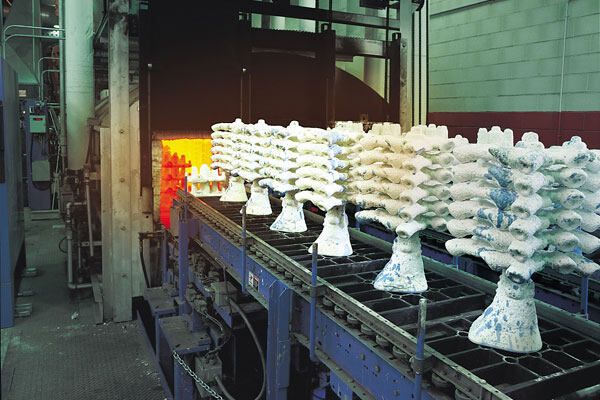Email tɛ se ka kɛ lankolon ye
Password tɛ se ka kɛ lankolon ye
Email cogoya fili
Email tɛ se ka kɛ lankolon ye
Email bɛ yen kaban
6-20 sɛbɛnni(sɛbɛnniw fara jatedenw dɔrɔn kan)
Daɲɛ dogolen tɛ bɛn ɲɔgɔn ma
Email cogoya fili
Email tɛ se ka kɛ lankolon ye
Email tɛ yen
6-20 sɛbɛnni(sɛbɛnniw fara jatedenw dɔrɔn kan)
Daɲɛ dogolen tɛ bɛn ɲɔgɔn ma

Kunnafoniw
low pressure die casting,types of die casting,aluminium die
Aluminum die is a kind of pressure-casting part, which is to add heated liquid aluminum alloy into the feed port of the die-casting machine. After die-casting, the formation of the corresponding, conform to the mold of aluminum alloy parts, such parts are usually are called aluminum alloy die casting.
What are the characteristics of aluminium die? and its applications?

Because the metal aluminum alloy has good fluidity and plasticity, and is cast in a low pressure die casting, the aluminum alloy die-casting can be made into various complex shapes, and can also be made with high precision and smoothness. It greatly reduces the machining amount of castings and the casting allowance of metal aluminum alloys. This not only saves electricity and metal materials, but also greatly saves labor costs;
And aluminum alloy has excellent thermal conductivity, small specific gravity and high machinability, so it is widely used in automobile manufacturing, internal combustion engine production, motorcycle manufacturing, motor manufacturing, oil pump manufacturing, transmission machinery manufacturing, precision instruments, landscaping, electric power construction, building decoration and other industries.
Aluminum alloy die casting can be made for the aluminum die casting auto parts, aluminum die casting automobile engine fittings, aluminum die casting, aluminum die casting engine cylinder cylinder of engine cylinder head, aluminum die casting valve rocker arm, aluminum die casting valve bearings, aluminum die casting power accessories, aluminum die-casting motor end cover, aluminum die casting, aluminum die casting shell pump shell, aluminum die casting building parts, aluminum die casting parts, aluminum die casting guardrail accessories, aluminum die-casting aluminum wheel and so on.
Types of die-casting aluminum alloys
-
Al-Mg alloy
Al-Mg aluminum alloy has the advantages of good mechanical properties at room temperature; strong corrosion resistance; poor casting properties, large fluctuations in mechanical properties and wall thickness effects; when long-term use, the plasticity of the alloy due to aging drop, and even cracking occurs in die castings; the tendency of stress corrosion cracking in die castings is also greater. The disadvantages of Al-Mg alloy partially offset its advantages, making it limited in application.
-
Al-Zn alloy
Al-Zn aluminum alloy die castings can obtain higher mechanical properties after natural aging. When the mass fraction of zinc is greater than 10%, the strength is significantly improved.
The disadvantage of this alloy is poor corrosion resistance, tendency to stress corrosion, and easy hot cracking during die casting. The commonly used Y401 alloy has good fluidity and is easy to fill the cavity. The disadvantage is that it has a large tendency to form pores, and when the content of silicon and iron is low, it is easy to be hot cracked.
-
Al-Si alloy
Because Al-Si aluminum alloy has the characteristics of small crystallization temperature interval, large solidification latent heat of silicon phase in the alloy, large specific heat capacity, and relatively small linear shrinkage coefficient, its casting performance is generally better than other aluminum alloys. The filling ability is also good, and the thermal cracking and shrinkage tendencies are relatively small.
The Al-Si eutectic contains the least amount of brittle phase (silicon phase), and its mass fraction is only about 10%, so its plasticity is better than that of other aluminum alloy eutectic, and the remaining brittle phase can be further treated by modification to improve plasticity.
The test also shows that the Al-Si eutectic still maintains good plasticity at the temperature near its freezing point, which is not found in other aluminum alloys. There is often a considerable amount of eutectic in the cast alloy structure to ensure its good casting performance; the increase in the number of eutectic will make the alloy brittle and reduce the mechanical properties, there is a certain contradiction between the two.
However, due to the good plasticity of Al-Si eutectic, it can better take into account the requirements of both mechanical properties and casting properties, so Al-Si alloy is currently the most widely used die-casting aluminum alloy.
In conclusion
Aluminum alloy die-casting is widely used in all aspects of our life, which facilitates our daily life. Of course, in addition to aluminum alloy die-casting, there are other types of die casting. For more information about die casting parts, please feel free to contact us. As a leader in the die casting industry, we are happy to serve you.

